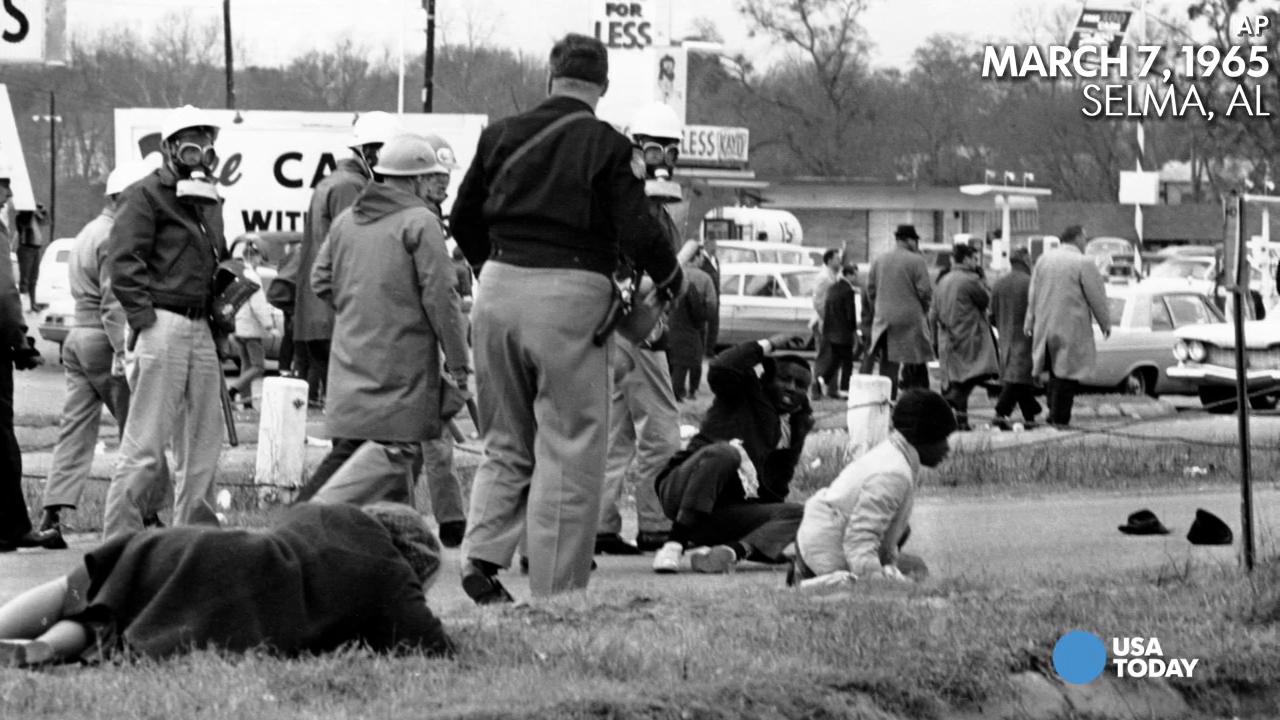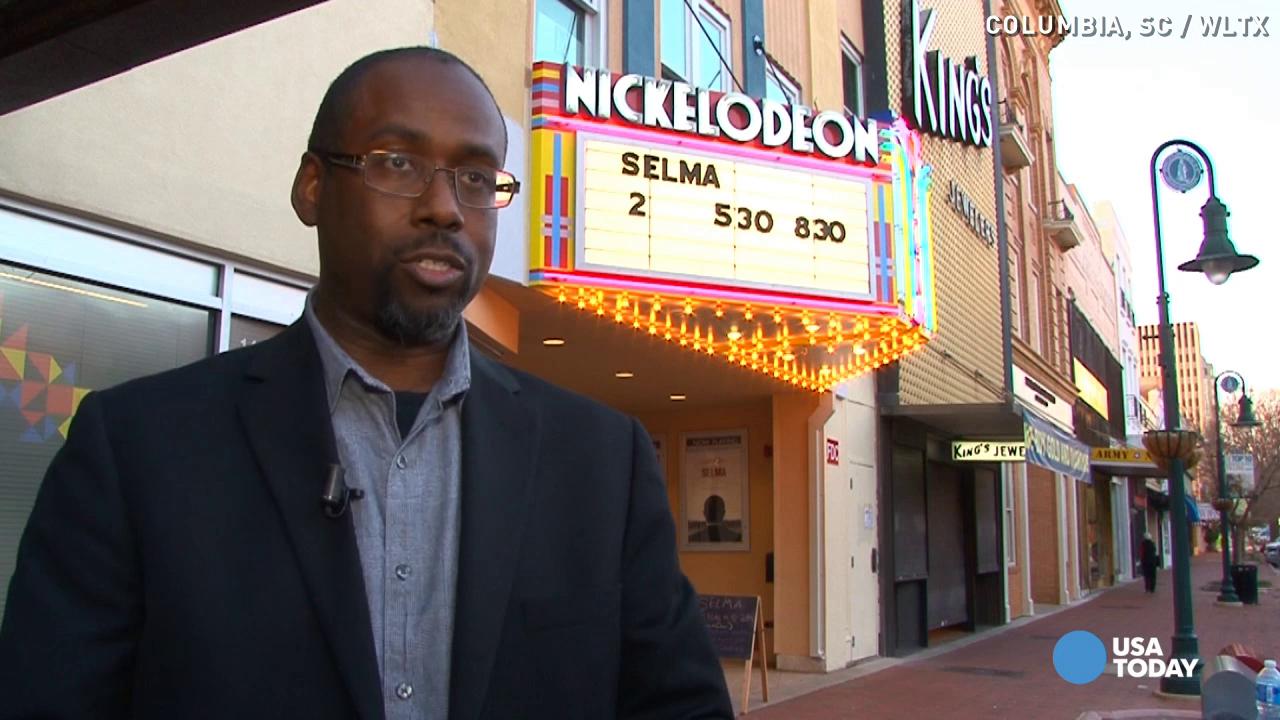5 things to know about Bloody Sunday this weekend
1. Obama gave commemorative speech on Saturday
To observe the 50th anniversary of the Bloody Sunday voting rights march that ended in violence at the Edmund Pettus Bridge in Selma, Ala., President Obama spoke in Selma at noon Saturday. The vicious March 7, 1965, police attack on marchers at the bridge in Selma horrified the nation and was a catalyst for both passage of the Voting Rights Act of 1965 and a transformation of American politics, government and society.
Obama and others attending events this weekend sought to praise racial progress but also address remaining challenges. A 2013 Supreme Court ruling all but neutralized the act by eliminating the need for some states to get federal approval before changing their election laws. Democrats in Congress and civil rights groups say some states are seeking to dilute minority votes through a new round of voter identification laws and redistricting plans reminiscent of the restrictions people protested in the 1960s. The Selma commemoration also takes place amid tense police-minority relations across the country. Follow Aamer Madhani and David Jackson on Twitter for updates all weekend from Alabama.

2. Selma-to-Montgomery 50th anniversary march is Sunday
Democratic Rep. John Lewis, D-Ga., who as the chairman of the Student Nonviolent Coordinating Committee co-led the march with the Southern Christian Leadership Conference's Hosea Williams 50 years ago, will lead the commemoration this Sunday. On March 7, 1965, 600 voting-rights protesters set out from Selma on a 50-mile trek to the state Capitol in Montgomery. At the bridge, they were met with nightstick-wielding state troopers and sheriff's deputies, who attacked when the marchers refused to disperse. Sixteen people were hospitalized, at least 50 others were injured and Lewis suffered a skull fracture that day. Two subsequent marches were led by Martin Luther King Jr.: a symbolic March 9 "turnaround" march that ended at the foot of the bridge and a March 21 protest that successfully arrived in Montgomery on March 25.
Check out Paste BN's historical timeline of the Selma-to-Montgomery marches, and view more on Lewis' account of the infamous day. More stories about Bloody Sunday and other civil rights events can be found at Paste BN's Civil Rights in America site.

3. Activists are looking for resurgence
Even as Selma seeks to honor the foot soldiers in the civil rights movement, there is a sentiment shared by activists that this moment should be as much — if not more — about looking forward, with the conversation about civil rights and race relations once again in the spotlight. The Rev. William Barber, head of the North Carolina NAACP, said the anticipated 100,000-plus participants are coming to recommit themselves to the movement. Bernice King, CEO of the King Center and Martin Luther King Jr.'s youngest daughter, said, "We are at a critical moment. We can keep reacting, or we can finally make some critical changes like they did in the '50s and '60s."
4. A look at Selma's historical accuracy
More people will be able to watch the Academy Award-winning movie, Selma, than actually attend the events this weekend, so it's interesting to note where historians and Hollywood diverge. Ava DuVernay, director of Selma, focused her lens on both Bloody Sunday and the subsequent civil rights marches in Alabama led by Martin Luther King Jr. (played in the movie by David Oyelowo). The film aroused controversy because it depicted President Johnson (played by Tom Wilkinson) as almost reluctant to move forward on voting rights legislation. Another difference: The movie shows American TV viewers watching the violent events of Bloody Sunday in real time. In reality, ABC interrupted an airing of Judgment at Nuremberg hours later with the footage. But here's one parallel: In the film, Oyelowo makes his speech from the same lectern that King used.

5. Marching to the music
Patti LaBelle will perform at the Dream Marches On concert on Saturday in Montgomery, while other concerts include BET's and Centric TV's Salute to Selma on Saturday. (Centric TV will air Salute to Selma on March 15.) Music plays a crucial role as a soundtrack to the civil rights movement — just look at Glory, by John Legend and Common, which won the Oscar for best original song. A group that was among the original voices of the civil rights movement, The Staples Singers, is enjoying a revival with the re-release of its most popular songs.
In case you missed it:
Did you pay attention this week? Let our news quiz be the judge of that.
And, the weekend essentials:
The week in pictures:
The top videos of the week. And, yes, they're all surprising sights videos:

Need a break? Try playing some of our games.
You can also subscribe to get the day's top news each weekday in your inbox or find us on the Yo! app: justyo.co/usatoday.